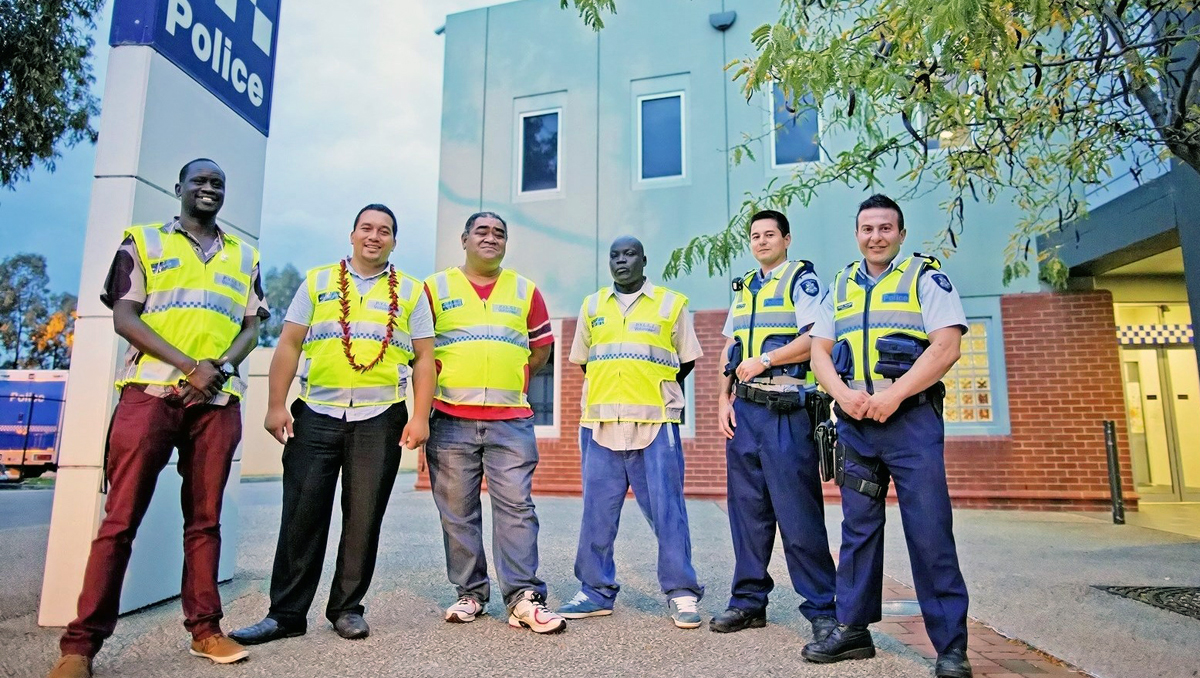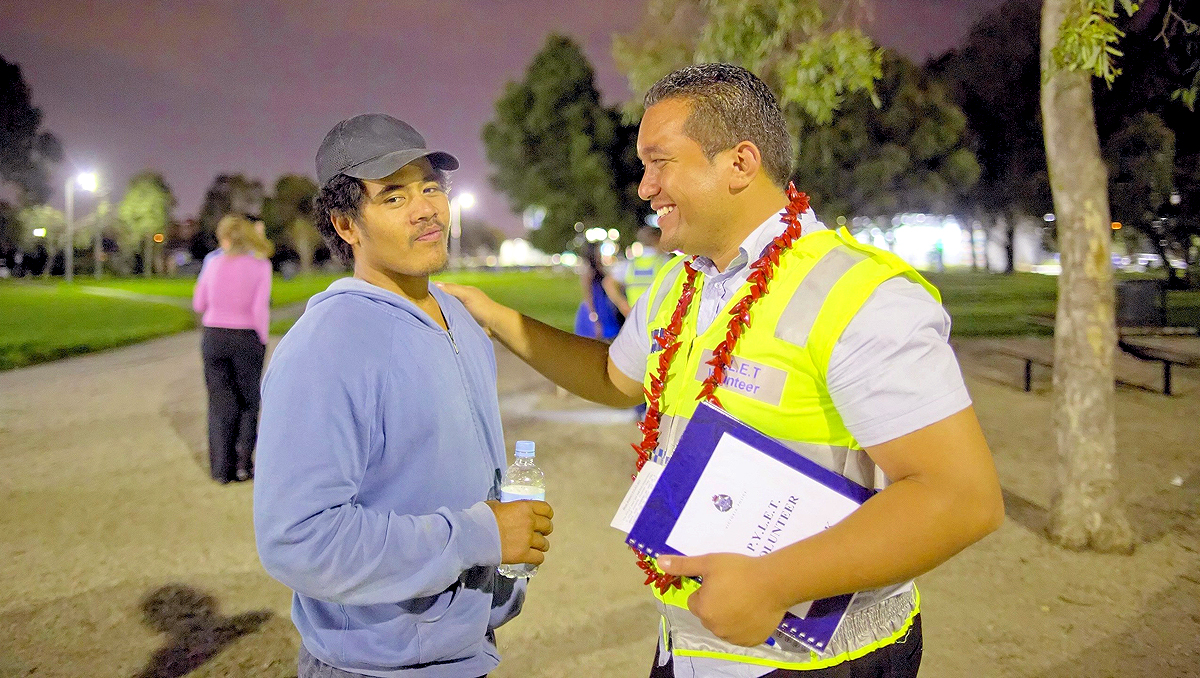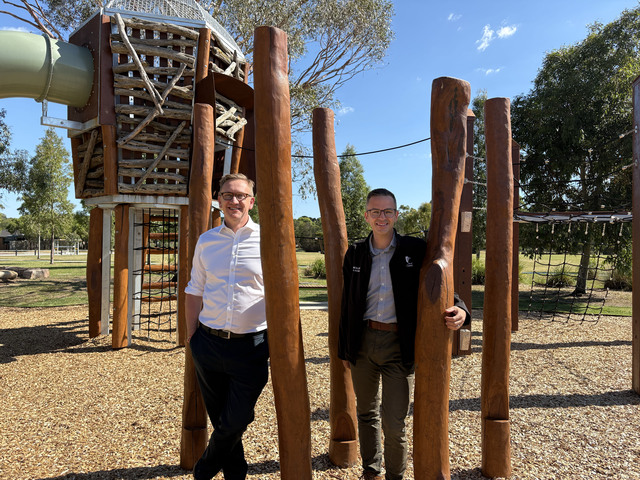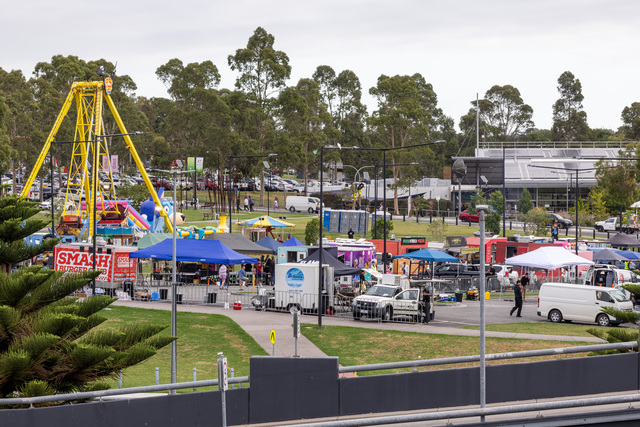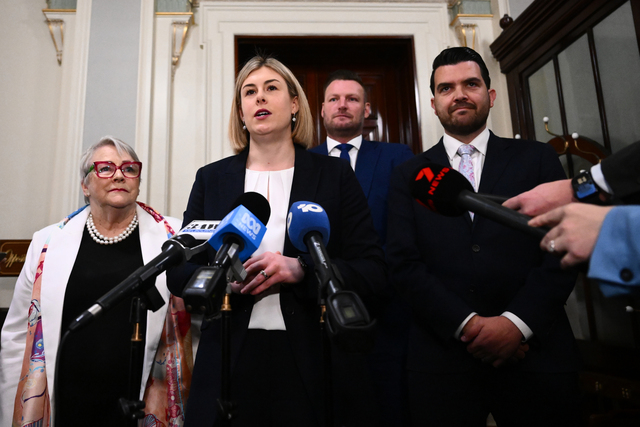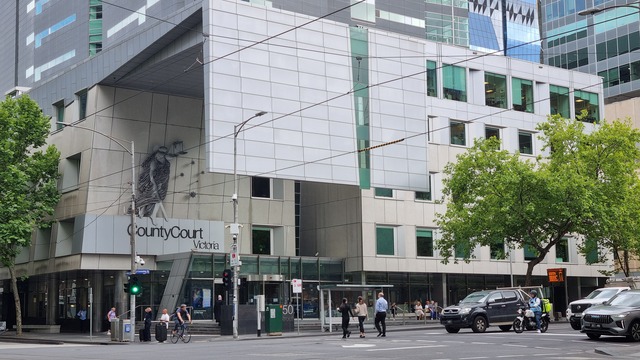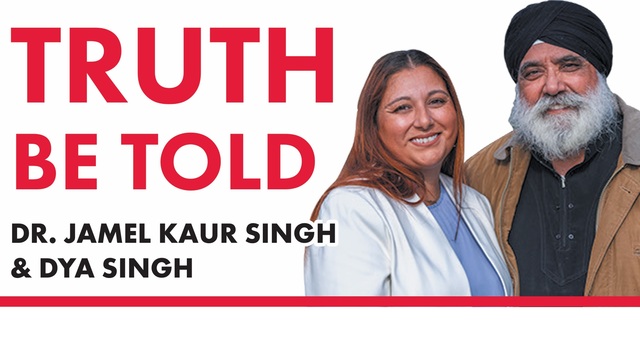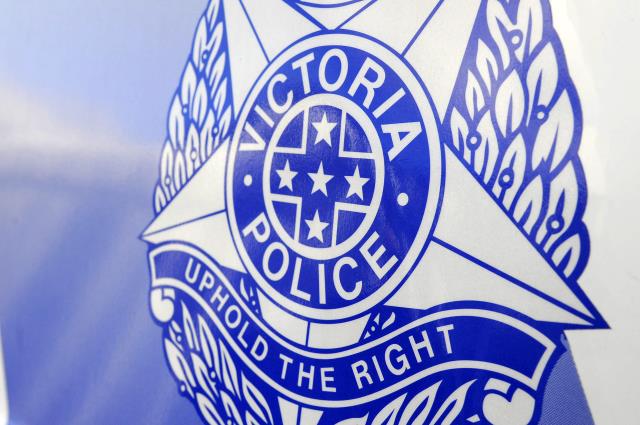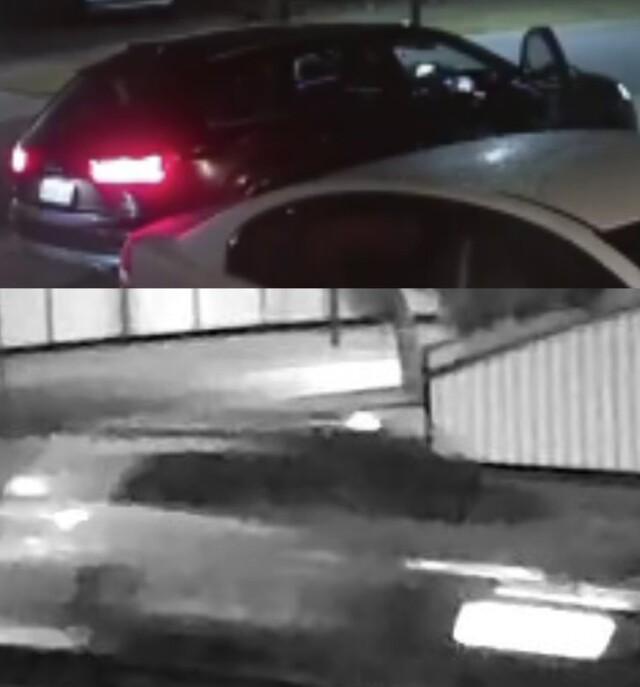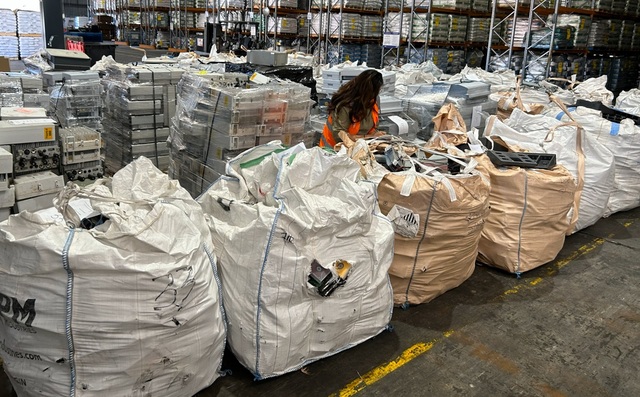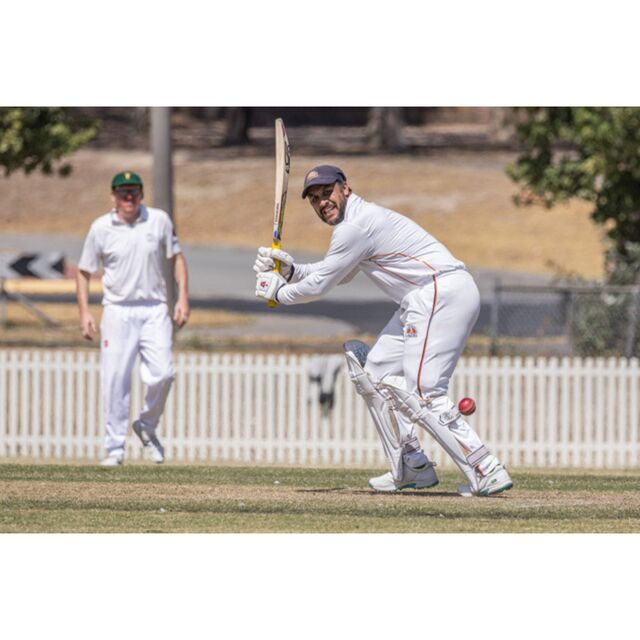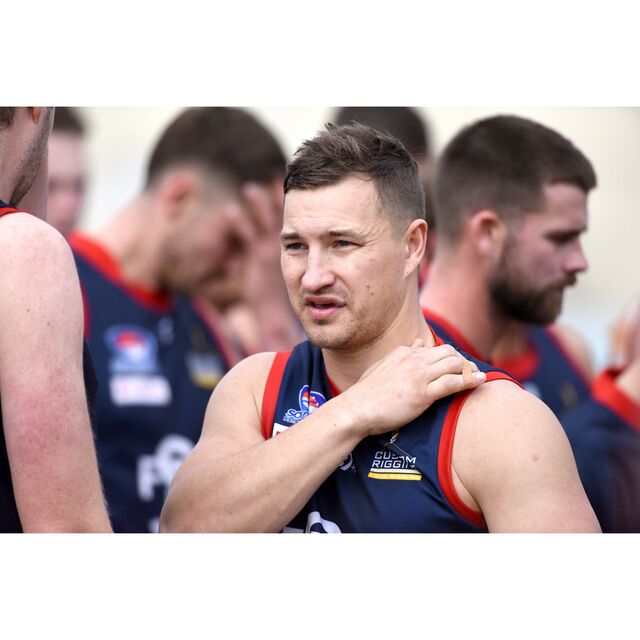By CAMERON LUCADOU-WELLS
We join a team of peacemakers building bridges between police and young people from African and Pacific Islander communities.
Their targets are young people
hanging in the city’s roughest places. For many of these youth, the hugs
are probably a rare show of warmth on a cold winter’s night.
Despite the official vests, this team
of volunteer young leaders, working with police officers, isn’t about
conventional policing. It is a statewide first, a Police & Young
Leaders Engagement Team (PYLET) in more ways than one.
On a recent Friday night, the Journal cruised in a mini-van with the team’s two Dandenong police officers,
Sergeant Joey Herrech and Leading Senior Constable James Waterson, and
five young leaders – BJ Kour, Willy Busari, Charles Seleman, Paora Te
Paki and Anthony Sofe.
Inside the van, the peacemakers
exchange jokes and join a discussion on the dowry system in a Sudanese
village, where the record dowry was more than 200 cows for a wife.
The leaders are entrenched in their
Maori, Samoan and Sudanese communities and they are recognised by many
of the troubled youth. Seleman is a pastor and musician who helps
disadvantaged youth record CDs, Paki helps young people who live in
secure welfare housing and Sofe is a Samoan community chief and church
leader.
The leaders aim to build trust
between police and young people who see police as the bad guys muscling
in and making arrests when trouble starts. PYLET aims to be proactive,
out from early in the evening and hosing down trouble before it has the
chance to ignite.
There has been cause for the change of tack. A report called Boys, you wanna give me some action: Interventions into policing of racialised communities in Melbourne, co-authored by Springvale-Monash Legal Service in 2009, found African young people claiming racialised treatment by police.
The report stated Africans were being
excessively stopped and searched, questioned, asked for identification
and told to move on, more so than other cultural groups. In some cases,
they were victims of physical violence.
In February, after an out-of-court
settlement between police and a group of African-Australians in
Melbourne’s west, who alleged racial profiling and over-policing against
them, Victoria Police’s chief commissioner, Ken Lay, acknowledged “some
of our people have let us down”.
At the Dandenong-based Safe Suburbs
taskforce, there is a sense of marked change, especially since moving in
August from zero tolerance to a firm-but-fair approach to situations of
public disorder.
The taskforce has been credited with
reducing public drinking and robberies and assaults in Greater Dandenong
since late 2011. Protective Services Officers also have helped keep the
peace at notorious railway stations such as Dandenong.
Before PYLET started in April,
out-of-control weekend parties — many involving African and Pacific
Islander groups — were the most pressing issue. Police were being called
out to disperse crowds of hundreds of intoxicated people from about six
parties each weekend.
Sergeant Herrech, who is the
program’s co-ordinator and a long-standing advocate of its
proactive-policing style, says crimes and incidents have dropped off on
PYLET patrol nights.
He says the program’s success helps
him convince his colleagues of the worth of a more creative, respectful
policing style. “Our colleagues who worked later on those [PYLET patrol]
nights have told us it was eerily quiet,” he said.
The team often crosses paths with sterner police units who are more inclined to move loiterers on.
Sergeant Herrech moves with friendly
body language towards groups of young people and is quick to offer a
welcoming “How are you, brother?” The aim is to find out how the young
people are going in life, what’s happening at home and to see if there
is a need for some help.
He speaks to a girl, 17, who says she
is interested in joining the police force but has a criminal record for
armed robbery. He says the criminal record is going to make things hard
for her; she should start volunteer work to show people she is now on
the right track.
First stops are Dandenong Pop-Up
Park, railway station and Dandenong Plaza where there have been recent
reports of assaults, some involving young people identifying themselves
with American colours.
There are opportunities for good deeds.
The team warns off a would-be car
thief in Dandenong Plaza car park, convinces a bus driver to give a ride
to Doveton to an inebriated passenger carrying a slab, and gives sage
advice to organisers of a Sudanese social event on how to deal with
gatecrashers.
As the team moves through crowds at the plaza, some young people scatter and some give quizzical stares.
Sudanese young leader BJ Kour says
that sometimes the community leaders are given a hard time. When
approaching a large group, he usually makes a beeline for the leader and
chats in their language.
“If you get the respect of the leader you get the respect of all of them,” he says.
In
some circumstances, the leaders enjoy a higher status. “Are you with
the police?” some youth admiringly say to the leaders. There’s a waiting
list of more than 30 would-be leaders to join the program.
The team finds a group of highly
at-risk young men at the station — those dressed in American colours.
They walk up and say hello. It goes well. Defences are down, an inch of
trust is earned.
One of them is a boy, 16, who lives
as a ward-of-the-state in a Scott Street facility, his parents having
left him to go home to the Cook Islands.
One of the PYLET leaders, Paki, says
the boy used to dabble in crime, fighting and alcohol but has been
keeping himself out of trouble for a while.
“We’re trying to get him something to
do,” Paki says. “I offer them encouragement and support. Most of the
kids in the groups don’t have those positive role-models. It’s tough to
say what’s going to happen to that fellow.’’
Willy Busari, a Sudanese Australian,
has been on most of the fortnightly PYLET runs. He is a strong, quiet
presence and says his role is to show youths that police are there for
them, not against them. Hard-line policing escalates the tension and
causes young people to bite back, he says.
Outside Dandenong Plaza, Sergeant
Herrech asks a youngster called John how police can help point young
people in the right direction. John had been in trouble with the law and
had his skull fractured when run over by a car. He has given up
marijuana for music, playing guitar piano and singing rap.
John said PYLET was “perfect” — the members talked to young people the right way.
“That’s the way to get our respect,” he says.

